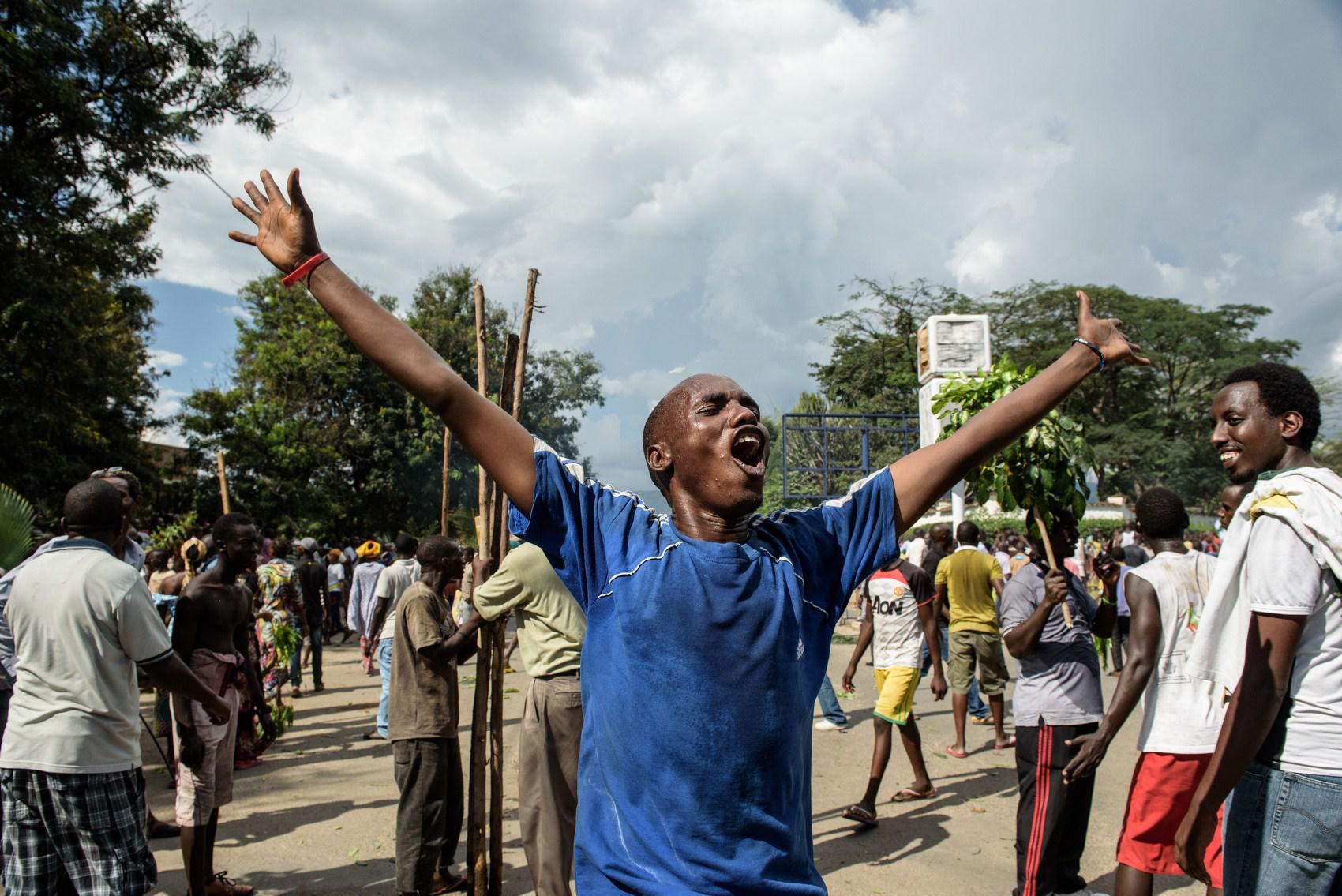Fluid is probably the best word to describe the fast-changing political situation in the Central African nation of Burundi right now.
On Wednesday there were public celebrations after a general claimed to have deposed President Pierre Nkurunziza, who had sparked public outrage by announcing his intention to run for a constitutionally barred third term. But on Thursday the head of the country’s army denied that the coup had taken place. Either way, there were sporadic gunfights throughout the day in the capital between the president’s loyalists and opponents in the military. At the very least, the president’s supporters appear to be in control of the state radio station.
Nkurunziza was out of the country at a meeting of African leaders in Tanzania on Wednesday when the situaton began to unfold. There were reports earlier Thursday that he had taken refuge with the Tanzanian government, but he now claims on Twitter to have returned to the country. (That should probably be taken with some skepticism until he actually appears in public.)
The country’s current political crisis started in late April when police used live ammunition to break up demonstrations—killing several protesters in the process—following Nkurunziza’s announcement that he would seek a third term. He has already served two of his constitutionally limited five-year terms, but he argues that the first one didn’t count since he was elected by parliament, not the public, as part of the peace deal that ended the country’s decade-long civil war in 2005. While Burundi didn’t see bloodshed on the scale of neighboring Rwanda, 300,000 people died in the war, which was rooted in conflict between the majority Hutus and minority Tutsis. For the moment, though, the current crisis seems to be more about democratic legitimacy than ethnic rivalry.
Nkurunziza, a former Hutu rebel leader, has grown increasingly intolerant of dissent lately, and has gone as far as to ban group jogging on the grounds that it could be cover for subversion and protest. The country’s parliament blocked proposed changes to the constitution last year that would have removed term limits and consolidated his power.
Burundi’s is the lastest in a series of African political crises sparked by disputes over term limits:
—In 2012, protests turned violent in Senegal after a court ruled that President Abdoulaye Wade could run for a third term since term limits had only come into effect after he became president. He would go on to lose the controversial election.
—Last year Burkina Faso President Blaise Compoare was swept from power after 27 years of rule amid protests over his attempts to amend the law to allow himself a third term.
—Togo hasn’t had constitutional term limits since 2002, but thousands of Togolese took to the streets this past November to demand them after President Faure Gnassingbe announced he was running for a third term.
—In January of this year, President Joseph Kabila of the Democratic Republic of Congo was blocked from amending the constitution to allow himself a third term after protests in which as many as 40 people were killed by police.
There are plenty of examples of a leader successfully engineering constitutional changes to keep themselves in power, but as political scientist Ken Opalo notes, it seems to be getting harder for African presidents to pull this off.
Military coups are rarely a good sign for the consolidation of democracy, but one would hope other leaders would take the crises faced by Nkurunziza and others as signs that keeping yourself in power indefinitely is a risky proposition. Of course, that will also depend on whether the president makes it out of this.
